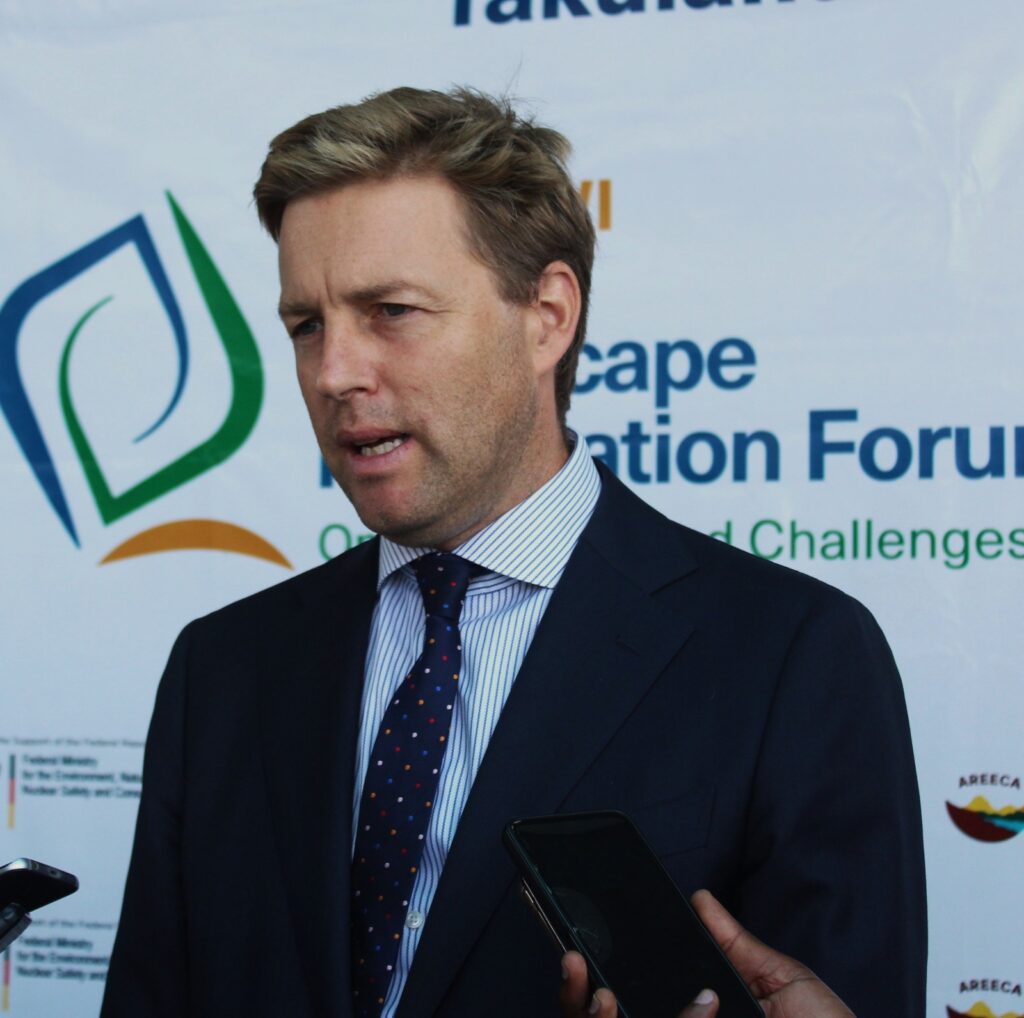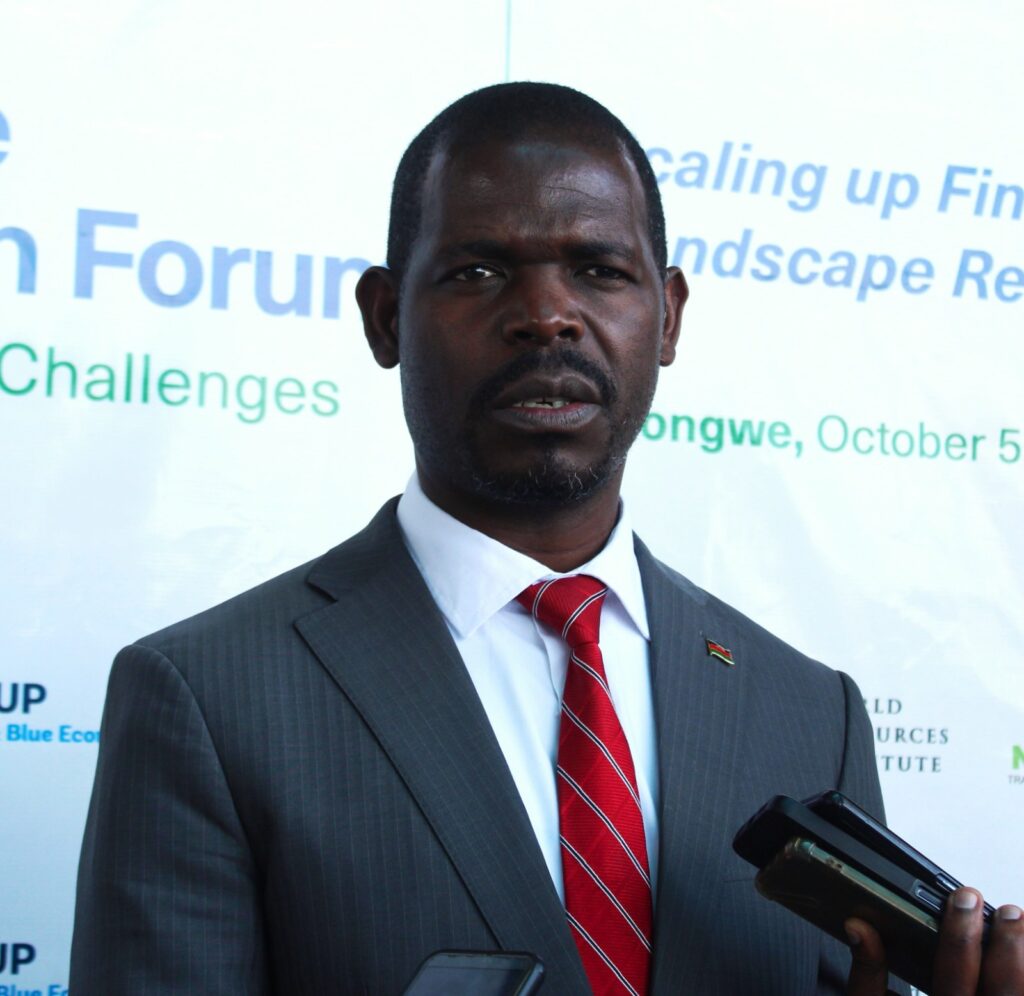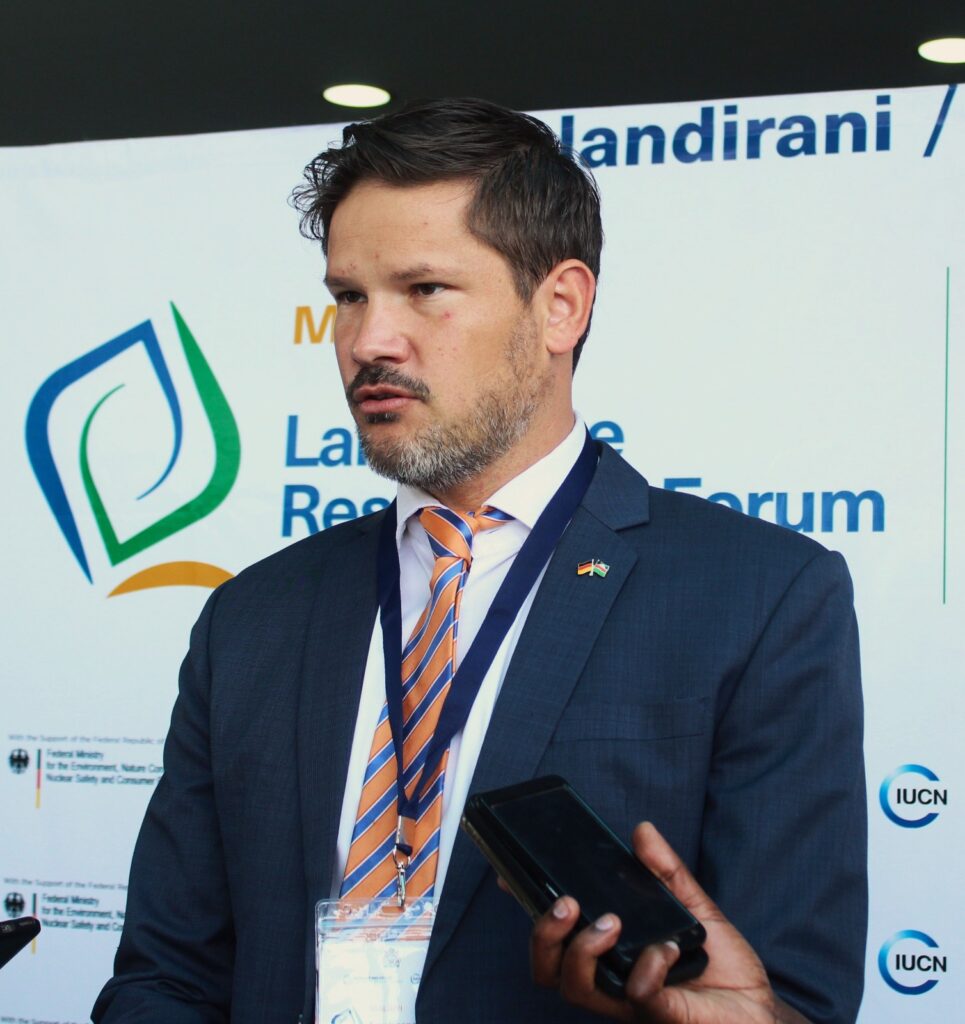
By Lovemore Khomo
Addressing delegates at Malawi Landscape Restoration Forum in Lilongwe, World Bank Country Manager for Malawi Hugh Riddell, said land degradation is being fueled by people who are cutting down trees in order to earn a living.
“We want to shout and make noise as we know that land degradation is a crisis which is manifested by poverty where people cut down trees to earn a living. This fight should consider many things including social protection, increase generation of energy and connect people to the national grid as alternatives.” Advised Riddell.
The conference which was held on Thursday 5th October 2023, under the theme ‘Opportunities and Challenges’ was organized to engage with both national and international stakeholders in a discussion to promote investments in forest landscape restoration (FLR) to achieve national targets for restoration and improve coordination among actors implementing and financing FLR in Malawi.
Riddell emphasized land is everything and is a fundamental source of all equally basic needs like water and food.
While expressing the need to collectively monitor land restoration projects including the main 4.5 million hectares that has been targeted up 2030, he warned that failure to conserve it, the country will be in big trouble.
He further called upon government and relevant stakeholders to “prepare for urgent need to cope with increase vulnerability to climate change and put much attention to improve natural resources management and respond to energy demand.”
In his remarks, Secretary for Natural Resources and Climate Change Dr. Yusuf Mkungula applaud the World Bank for organizing the forum.

He said the gathering came at the right time when the country is looking for investments and support to recover from the effects of Cyclone Freddy, which caused a lot of damage to infrastructure resulting into food insecurity.
Mkungula lamented that degradation of natural resources has worsened the resilience and ability of the communities and biodiversity to cope and bounce back from climate change and economic related shocks in Malawi.
“It is therefore important that this gathering should address the barriers to increased investments in FLR in Malawi and discuss ways to attract more investments in forest landscape restoration in the country.” appealed Mkungula.
Government of Malawi with the support from local and international development partners, has set ambitious targets for restoring degraded landscapes. The targets are reflected under the Nationally Determined Contribution (NDCs), National FLR Strategy, Africa Forest Restoration Initiative (AFR100), Bonn Challenge and the UN Decade of Ecosystem Restoration.

Knut Gummert, Deputy Head of Mission and Head of Development Cooperation, German Embassy to Malawi echoed the need to invest in land restoration and conservation to improve agricultural productivity, protect ecosystems to facilitate improvement of living conditions for all Malawians.
Gummert noted that forest landscape restoration is a powerful solution to prevent further degradation and support in restoring degraded land in Malawi.
“We need to get better on collecting data on land degradation and restoration. Only then, we can assess the tasks and measure our success.” said Gummert.
The German government through the Ministry for Environment is financing the Alliance for Restoration of Forest Ecosystems in Africa (AREECA) with an aim of supporting and promoting FLR related activities in the four countries: Malawi, Kenya, Rwanda and Cameroon.
Meanwhile, in Malawi the Alliance is financing the restoration of the catchment area of the Mpira dam.
“We work with 77.400 people in 36 villages to create and improve new income creating activities with the aim to reduce the pressure on the catchment area.” Gummert said.
He commended the Malawi Government for its commitment to restore 4.5 million hectares of land until 2030, but only 1.8 Million hectares is currently under restoration.
However, Chairperson for Parliamentary Committee on Natural Resources and Climate Change Welani Chilenga dismissed the idea that Malawi will restore almost of 4.5 million hectares by 2023, citing lack of commitment from Ministry of Finance to provide funds.
“The Ministry of Finance is not committed on conservation issues as they don’t give a priority to Ministry of Natural Resources and Climate Change. To them is business as usual since the time of late President Hastings Kamuzu Banda, they have been pumping in more funds to Agriculture, Education and Health.” Said Chilenga.
About 80% of Malawi’s territory is affected by land degradation and deteriorating soil fertility. This is endangering the future of this country. The world bank figures indicates that Malawi is remaining with only 23 percent of the forest cover.




Democracy in Malawi has contributed to deforestation. People promoted lawlessness.